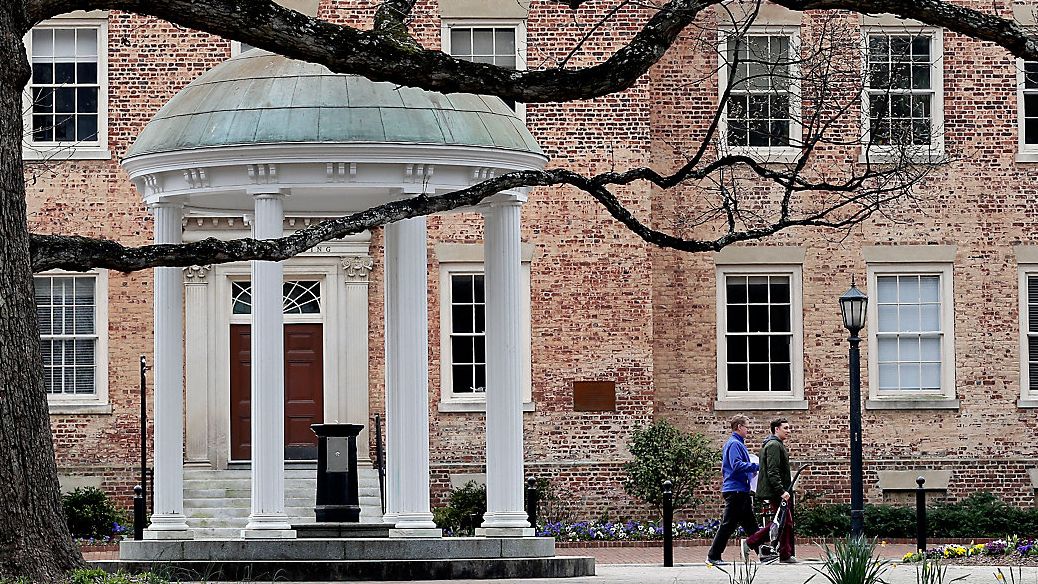The University of North Carolina at Chapel Hill will give free tuition to instate undergraduates from families making less than $80,000, the university announced Friday.
The move comes after a Supreme Court ruling striking down affirmative action.
"Last week, the U.S. Supreme Court held that universities across the country can no longer consider race when making admissions decisions, marking a fundamental change in the law that governs our admissions process, and that of thousands of other universities," Chancellor Kevin Guskiewicz said in a letter to students and staff.
The chancellor said the university also hired more staff to recruit students from underserved parts of the state.
"Our responsibility to comply with the law does not mean we will abandon our fundamental values as a university. We are and will remain passionately public, and we will ensure that every student who earns admission to Carolina can come here and thrive," the chancellor said.
"Our University’s commitment to access and affordability and supporting a culture of belonging for everyone does not change with last week’s ruling," he said.
The free tuition and fees will begin with the incoming class next year.
The Supreme Court's June 29 decision ended race-conscious admissions at colleges and universities. The 6-3 ruling came in two combined lawsuits against UNC and Harvard. The cases were first filed by a group called Students for Fair Admissions in 2014.
"We will follow the Supreme Court’s decision in all respects. That means race will not be a factor in admissions decisions at the University," Guskiewicz said.
"It also means we will comply with the Court’s ruling that an applicant’s lived racial experience cannot be credited as 'race for race’s sake,' but instead under some circumstances may illuminate an individual’s character and contributions," he said.






)
